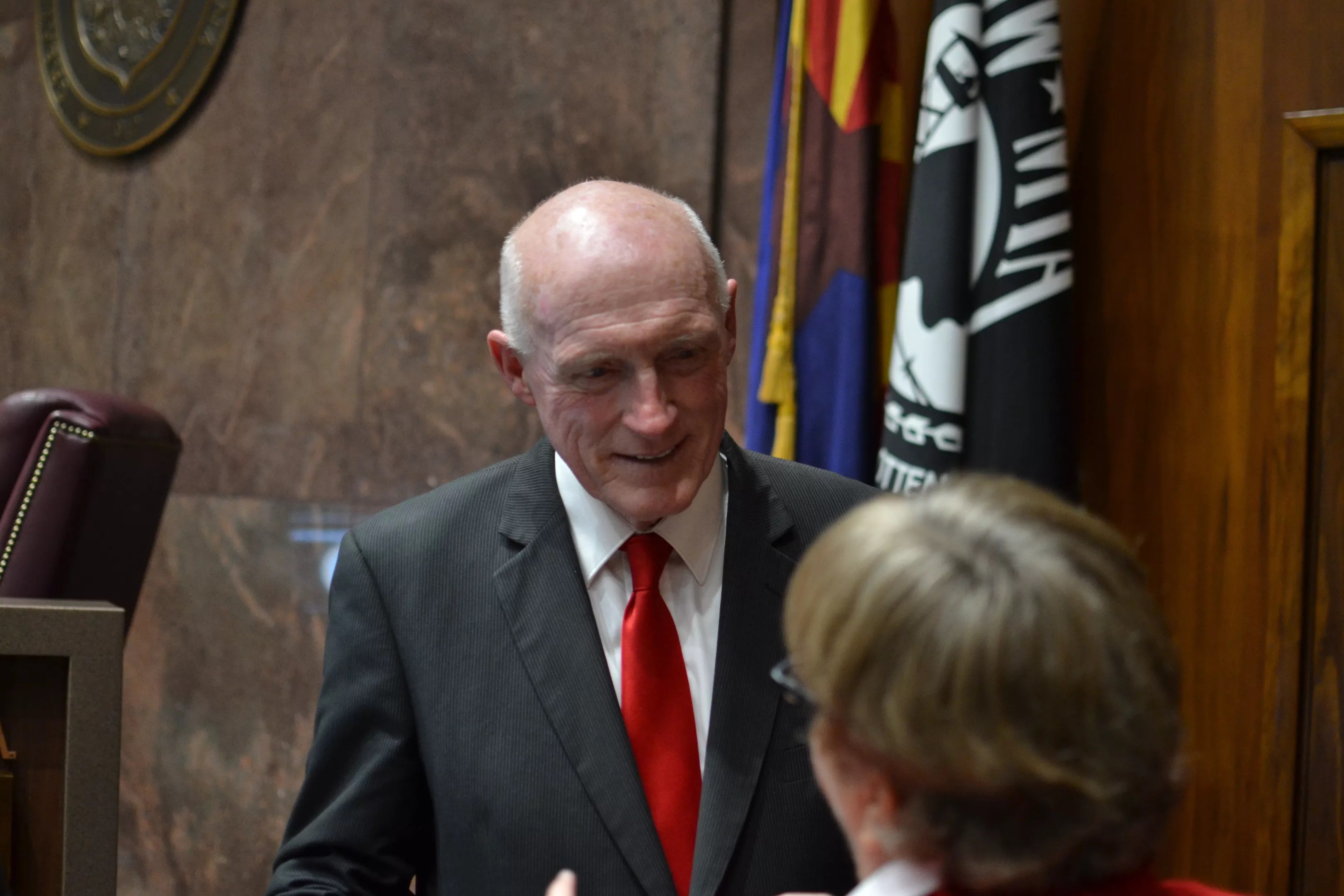
Elizabeth Whitman

Audio By Carbonatix
Every year, legal fines in Arizona are redirected to state courts and county prosecutors to help process criminal cases.
None of that money goes toward public defenders, despite a 1999 law granting them a share of the funds.
That’s not an accident.
For eight years straight — including this year — Republican lawmakers have redirected funds reserved for public defenders and given the money to state law enforcement agencies, including the state Department of Public Safety (DPS) and the Office of the Attorney General.
In 2012, for example, about $700,000 of state funds reserved for public defenders was reappropriated to the DPS for border enforcement.
In 2017, $700,000 intended for indigent defense instead helped fund the Arizona Counter Terrorism Information Center.
Police advocacy groups, the Arizona Police Association and the Arizona State Troopers Association, support the reappropriations. Neither responded to request for comment.
Until the most recent legislative session, the annual “sweeps” of funds from criminal defense to law enforcement have slipped under the radar.
Criminal justice advocates discovered the latest reappropriation during the final weeks of this year’s session, said Nate Wade, a Pima County assistant public defender who last year took on new duties as a legislative advocate for his office.
The #azleg voted to allow DPS (cops) to use the state budget allotment for #publicdefenders for DPS "operating expenses." So the cops now get their own budget and the public defense allotment as well. #CriminalJusticeReform #AZbudget #Corruption
— Nate Wade (@therealNateWade) May 24, 2019
The redirected funds represent a small figure for most county public defender offices. Pima County, for example, budgets more than $32 million for public defense services, compared with the $100,000 or so that it would stand to gain from state funds.
But Wade said raiding state funds for indigent defense — while leaving money for prosecutors and courts — exemplifies a criminal justice system that does not prioritize the rights of the accused.
“To take that money and give it to police, there’s an audacity there that I found pretty shocking,” Wade said.
The funds in question date back two decades. In the ’90s, Arizona saw an influx of criminal cases attributed to population growth and increased funding for law enforcement.
To help process the cases more efficiently, state lawmakers added a 7 percent surcharge to court fines, penalties, and forfeitures. The law also required 5 percent of all such revenue to help move criminal defendants through the system.

Arizona House Speaker Rusty Bowers in January 2019.
Elizabeth Whitman
Roughly 60 percent of that revenue was directed to state courts. County attorneys and public defenders, meanwhile, were given about 20 percent each for a State Aid to County Attorneys Fund and State Aid to Indigent Defense Fund.
The law also granted the Arizona Criminal Justice Commission, an appointed body, the responsibility of administering those funds.
Andrew LeFevre, executive director of the Arizona Criminal Justice Commission, said in a phone interview that the commission for years has opposed redirecting the funds away from state indigent defense.
Using a common metaphor, he likened funding for the criminal justice system to a three-legged stool composed of courts, prosecutors, and public defenders.
“If you’re not going to provide equal funding for all three legs of the stool, the stool is only as effective as the least effective leg,” LeFevre said.
In the commission’s most recent budget request to Governor Doug Ducey, LeFevre wrote that the loss of funding to counties has negatively affected their ability to process cases effectively and requested that the money be redirected back to its intended purpose.
During a Thursday evening budget session, Democratic State Representative Diego Rodriguez attempted to introduce a floor amendment that would have stopped the practice of moving money for public defenders to state law enforcement.
“These are both parts of the criminal justice system,” Rodriguez said. “They are both worthy of full funding.”
Republican House Speaker Rusty Bowers opposed Rodriguez’s amendment, emphasizing that the funds once again will go toward the Counter Terrorism Information Center.
Rodriguez’s amendment failed.